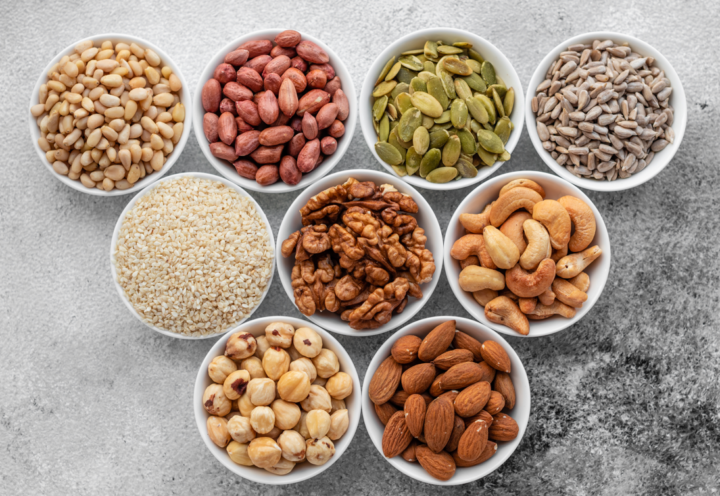
Nuts & seeds pack a punch
New advice from the Heart Foundation reveals that eating as little as three to four handfuls of nuts and seeds a week has a significant benefit for heart health, decreasing the risk of heart disease by around 20 percent.
Nuts and seeds are nutrient dense foods packed with heart healthy fats, fibre and protein and a wide range of essential micronutrients. Eating them regularly within an overall healthy diet helps to lower total and low density lipoprotein (LDL) cholesterol, also known as the ‘bad’ cholesterol.
In New Zealand, our consumption of nuts and seeds is generally low. Data from the last Adult Nutrition Survey suggests that average population intakes of nuts and seeds are around a third of the Heart Foundation’s recommendation.
Heart Foundation National Nutrition Advisor Lily Henderson says the goal is to get more New Zealanders to build more nuts and seeds into their everyday meals.
“Making small changes to your diet by regularly including a few handfuls of nuts and seeds has a positive impact on our heart health,” she says. “Most of the benefits are seen when we eat up to 15g every day (or three to four handfuls a week), but further heart health benefits are likely with intakes higher than this.
“The great news is regular intake of these amounts is not only good for us, there’s also good evidence from large population studies and clinical trials showing no impact on body weight which is a common misconception.”
Lily says to get the greatest health benefits, nuts and seeds should be eaten as close to their natural form as possible, for example, whole, sliced or ground. Nut and seed butters like peanut butter are also a fantastic option especially when compared to other spreads like jam or honey.
Here are some tips for including more nuts and seeds in your diet.
- Add them to meals you already eat – the bonus is they add protein to keep you satisfied and extra texture and flavour. They can be added to breakfast, lunch and dinner meals or eaten as a snack.
- Sprinkle toasted sunflower seeds on top of a salad; add a spoonful of peanut butter in a smoothie or sesame seeds to top an Asian dish.
- Look for products that include them as a key ingredient such as cereal, crackers and bread. Consider the overall healthiness of the product and choose the least processed options where you can.



